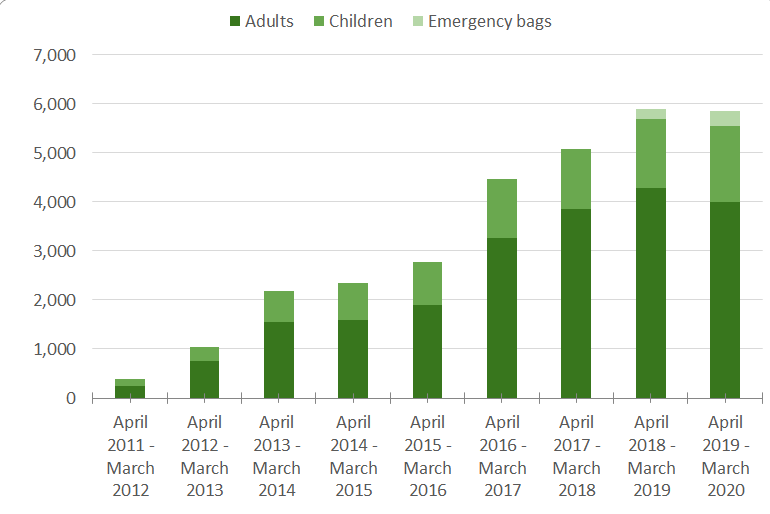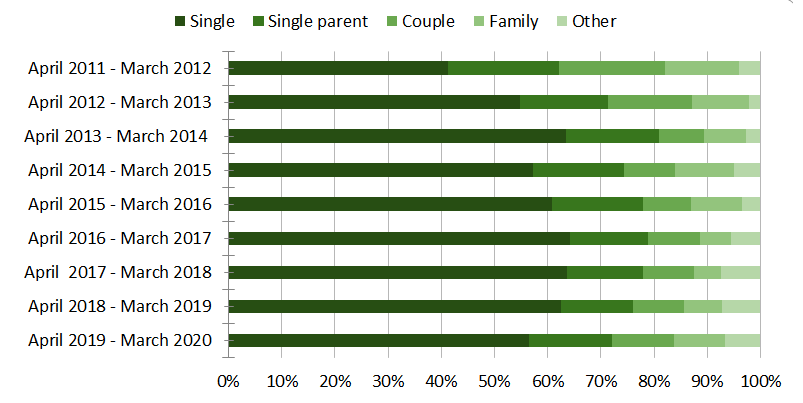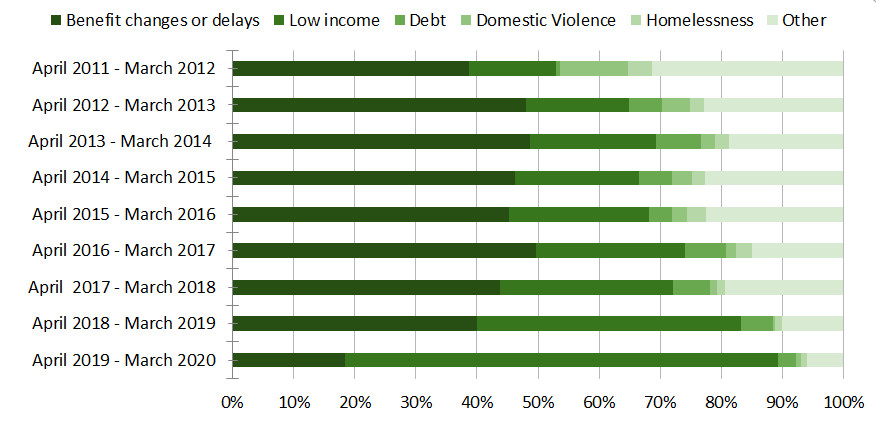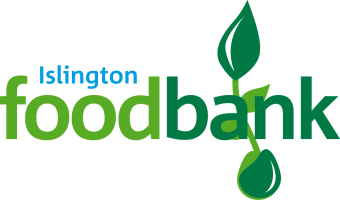As we have now come to the end of the 2019/20 financial year, we can review our figures and see how usage of our food bank has changed compared to previous years.
More than 5,860 clients served in 2019/20
Between April 2019 and March 2020 Islington Foodbank served at least 5,860 clients. This included 1,558 children and 312* emergency bags, which are smaller than our regular bags and are given to clients who do not have a voucher but have used the food bank in the past. However, these figures do not include clients who attended our final two sessions before we closed on 23rd March due to difficulties in reporting, meaning the true number of clients served is likely to be higher.

*This number is estimated.
More single people apply than any other group
Single people have remained the largest group using Islington Foodbank this year, making up 56.5%. The proportion of each household size has remained fairly consistent over the years, with single people making up the majority, followed by single parents, couples, and families.

This year we have seen a slight increase in the proportion of our clients who are children: 28.1% compared to 24.6% last year. However, this remains within a few percentage points of our all time proportion of children which is 27.4%.
Low income clients increase dramatically
In 18/19 low income overtook benefit changes and delays as the primary reason for accessing the food bank for the first time, with 43.1% of our clients citing this as the reason for their crisis. In 19/20 this trend has not just continued but dramatically escalated with 70.1% of our clients citing low income as the main reason for coming to us.

The flip side of this is that clients accessing us due to benefit changes or delays has fallen to just 1,021. This represents 18.4% of our clients in 19/20 and is the lowest absolute number of clients in crisis due to benefits since 2012/13.
Across the country food banks in the Trussell Trust network are seeing a similar trend of a greater proportion of clients being referred due to low income, though for the most part not as starkly as in Islington.
